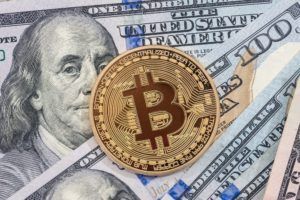Oh, Cheez…We’re back to this question, again!
As a Bitcoin columnist, I get this question a lot. Today, an answer was requested at Quora.com, where I am the lead contributor on cryptocurrencies:
“Clearly, some people value Bitcoin. But How can
this be? There is nothing there to give it value!”
Many individuals, like the one who asked this question, suspect that Bitcoin was pulled out of thin air—and that it is not backed by gold, a government, or an authoritative redemption guaranty. After all, it is just open source code. What stops me from creating an ElleryCoin using the same code?!
Let’s start with the short answer:
- Indeed, it was pulled out thin air
- It isn’t backed by an asset, government or promise
- You could easily clone Bitcoin (the entire mining ecosystem) and distribute it yourself. It would be exactly like Bitcoin. Yet, Bitcoin is clearly valued by everyone, and your new coin is unlikely to generate interest or adoption.
A More Complete Answer: What is value?
Bitcoin has more intrinsic value than a government printed paper bill. The value arises from a combiation of fundamental properties:
- It has a capped supply
- It is widely recognized, liquid, and resistant to legislation
- It has attained the robust supply-demand of a growing, 2-sided network.
- It is open and transparent. This elevates user trust
- Unlike cash and credit, Bitcoin requires no back-end settlement. That’s because it is not a payment instrument. Rather it is money itself.
- Finally, it’s value is likely to be durable, because it is not printed by a country that has racked up debt. In fact, it can never be inflated.
Downside and Risks

But wait! What about the long transaction delay and high cost? There are sharp disagreements anong miners, users and developers concerning block size, transaction malleability, and replay issues. Aren’t these a deal killers? And what about wild volatility in the exchange rate? Doesn’t this retard adoption as a functional currency?
These are transient issues associated with a new technology. Although Bitcoin is weathering growth pains that arise from a new and distributed governance technology (democracy can be messy!), all of these issues have sound solutions. We have already witnessed and tested the solyutions with various forked coins. Think of them as beta tests. Even if current problems delay the day when you can spend bitcoin at every retail establishment—it is already sucking liquidity from national currencies and becoming the world’s de facto reserve currency.
Many individuals find all of this hard to accept. That is because we have been conditioned to think that ‘value’ arises from assets with ‘intrinsic’ value, the promise of redemption, or by edict. This is not true. In all things, (including gold, a Picasso painting, or your labor) value arises from simple supply and demand.
Some individuals claim that all other factors are secondary. But, even this statement is false. All other factors are irrelevant. They may be related, but they are not the source of value.
I recognize that this answer may seem smug or definitive. So, allow me to suggest related questions with answers that are a bit more interesting, because they are subtle. Unlike the question of value, these two questions are open to analysis and opinion: (1) “Will people continue to value bitcoin in the future?” — And (2) “When will Bitcoin stop swinging wildly in value?” (measured by its exchange rate with other currencies).
This is fun! Let’s explore…
- Is Bitcoin a store of value?
- Revisiting Bitcoin Fair Value Calculation
- Spell it Out: What, exactly, backs Bitcoin?
- Bitcoin Adoption: A series of reactions
- Can Bitcoin be banned?
- Aristotle: Properties of a funcational currency
- Can cash have value if it isn’t real? «— My 1st bitcoin article
Philip Raymond co-chairs CRYPSA, publishes A Wild Duck and hosts the New York Bitcoin Event. Last month, he kicked off the Cryptocurrency Expo in Dubai. Click Here to inquire about a live presentation or consulting engagement.









Comments are closed.